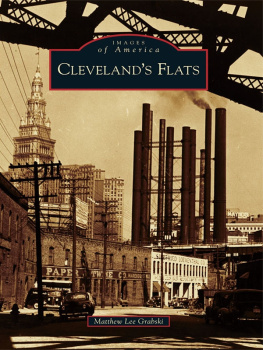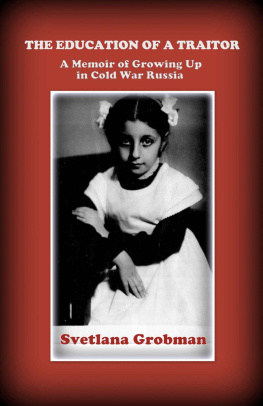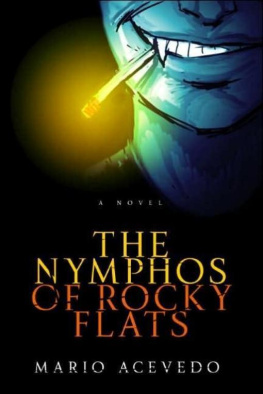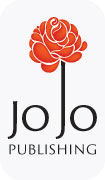Frieda Belakhova - My Past Life: The Soviet Experience
Here you can read online Frieda Belakhova - My Past Life: The Soviet Experience full text of the book (entire story) in english for free. Download pdf and epub, get meaning, cover and reviews about this ebook. year: 2015, publisher: JoJo Publishing, genre: Non-fiction. Description of the work, (preface) as well as reviews are available. Best literature library LitArk.com created for fans of good reading and offers a wide selection of genres:
Romance novel
Science fiction
Adventure
Detective
Science
History
Home and family
Prose
Art
Politics
Computer
Non-fiction
Religion
Business
Children
Humor
Choose a favorite category and find really read worthwhile books. Enjoy immersion in the world of imagination, feel the emotions of the characters or learn something new for yourself, make an fascinating discovery.
- Book:My Past Life: The Soviet Experience
- Author:
- Publisher:JoJo Publishing
- Genre:
- Year:2015
- Rating:5 / 5
- Favourites:Add to favourites
- Your mark:
My Past Life: The Soviet Experience: summary, description and annotation
We offer to read an annotation, description, summary or preface (depends on what the author of the book "My Past Life: The Soviet Experience" wrote himself). If you haven't found the necessary information about the book — write in the comments, we will try to find it.
In this memoir the author describes her childhood spent growing up in communal flats in Odessa before and after World War II, during which she and her family were evacuated to Uzbekistan. She provides detailed descriptions of her family and neighbours, and the terrible living conditions faced by all of them in the communal flats as they struggle with health problems and the everyday chores of life such as having sufficient clothing, food, heating, electricity, toilet amenities and other living conveniences that we usually take for granted. The story covers the authors childhood and teenage years in the flats, her time at kindergarten, school and tertiary education at the Institute of Foreign Languages, and all the people she met along the way including classmates, girlfriends, boyfriends, loves and teachers, all of whom are described in great detail from their appearance to their idiosyncratic behaviour. The memoir also covers the authors first teaching job, how she met her love and the man she eventually married, the birth of her son, and her near-normal family life with her husband, son and mother in a non-communal flat, until her husband confesses his love for another woman and her marriage ends in divorce. The story comes to an end with the authors attempt to leave the Soviet Union with her mother and son, and its eventual success, and descriptions of this difficult and nerve-wracking process. It then finishes with her trip back to Odessa 26 years later to visit the places where she lived and her old friends. Throughout this biography, we learn about the authors special relationship with, and admiration for her, mother. We also learn about the difficulties faced by Jews under the Communist regime where being Jewish is regarded as a separate nationality and not a religion, and the subtle and also outright anti-Semitism involved. Although the story covers much hardship and misery, the author shows the lighter side of life by sprinkling her writing with numerous political jokes of the time and explaining their meaning.
Frieda Belakhova: author's other books
Who wrote My Past Life: The Soviet Experience? Find out the surname, the name of the author of the book and a list of all author's works by series.

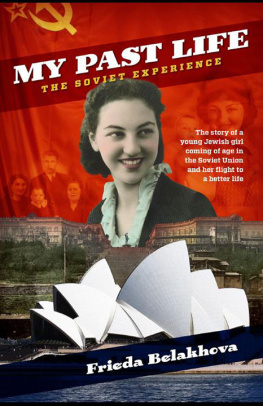
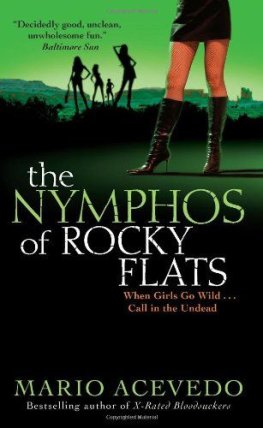

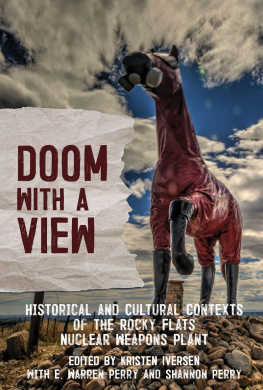

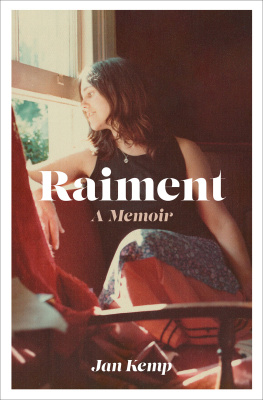
![Johnson - This boy: [a memoir of a childhood]](/uploads/posts/book/185323/thumbs/johnson-this-boy-a-memoir-of-a-childhood.jpg)
